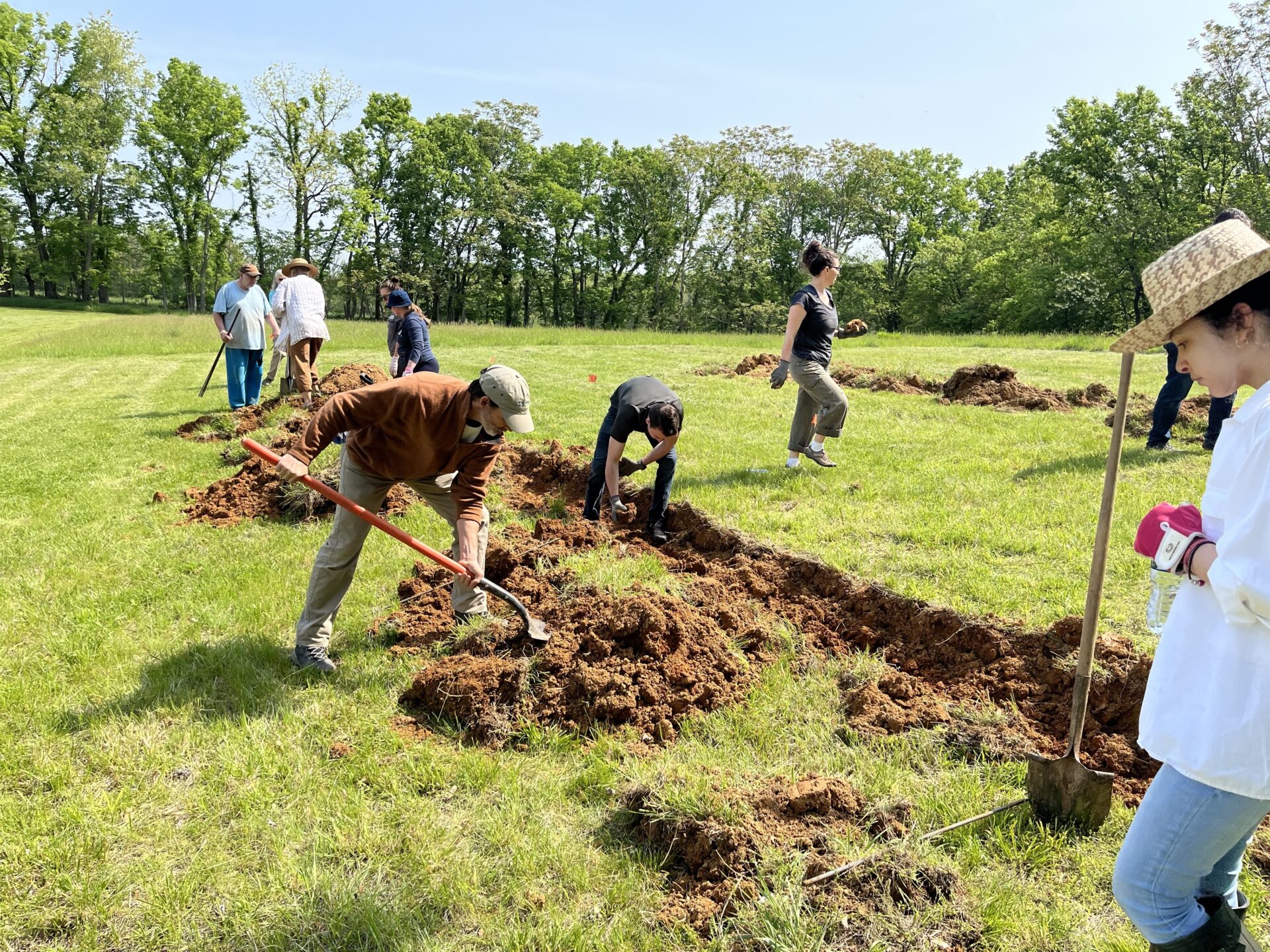Chestnut trees used to be abundant in the Appalachian region until a blight wiped them out at the turn of the 20th century.
Now, determined growers like Susan Thompson, a graduate student at Shepherd University, are part of an effort to return the trees using hybrid saplings. They’re combining the American chestnut with the Chinese variant, which is a little bit more sturdy.
“We’re trying to get as close to a pure American as we can but still retain the quality of resistance to the blight, the fungus,” Thompson said.
Before the blight, chestnuts were used in the region not just as a source of timber for furniture, but as a way to feed your family.
“They’re super nutritious, one of the highest nutritional contents,” Thompson said. “They’re also great for things like people with diabetes, and they have a lot of nutritional needs for people who have challenges.”
Thompson is planting the trees at Shepherd University’s Tabler Farm, which the school uses to reintroduce other native plants like hackberry and serviceberry. But farm coordinator Madison Hale said chestnuts are much more useful economically.
“If you are thinking about how I can make a living off of trees, in farming, the chestnut is a species that you’re going to want to plant because they’re very marketable,” Hale said.
Hale said they’re able to support the project because of Tabler Farm’s status as a university farm, which allows for more experimental crop growing than what commercial farmers can allow.
“Because we are a university and most of what we’re doing is grant funded, we have an opportunity to bring the educational and experimental and research side of farming into this,” Hale said.
Thompson organized the project as part of her coursework for a Master of Arts in Appalachian Studies.
Sylvia Shurbutt, director of Shepherd University’s center for Appalachian Studies, said this project is one of the programs the course supports to help keep Appalachian traditions alive.
“I think now we’re kind of at our real high point in what we’re able to do, which is to tell the story of West Virginia and to tell the story of Appalachia,” Shurbutt said.
Thompson also had volunteers from her program, as well as around the community, help with the planting through an open sign-up. One such volunteer was Martinique Gray, a history major at the university.
“I have a horse farm,” Gray said. “And I’m really interested in learning how to improve the environment in my farm and how to better improve the kind of living I have and the kind of lifestyle that I’m building for myself.”
Thompson and other advocates say the most important use for chestnut trees is its role in recovering the Appalachian Mountains’ already strong biodiversity.
American chestnut trees grew more than 100 feet tall, according to the U.S. Department of Agriculture. They helped cool the mountains, with the chestnuts themselves helping keep animals fed and abundant.
In the face of a changing climate, animal species are taking advantage of the shelter and food in those same Appalachian Mountains.
“It’s got hundreds of microclimates there, which they don’t have in other places, because of this mountain biodiversity and this mountain habitat,” Thompson said. “If a species can’t survive in one place, it can move over a little bit to another place.”
Growing American chestnuts is a long-term project – part of it requires figuring out how quickly these trees can grow to full-size. But Thompson said the productivity that comes from the finished crop will be worth the wait.
“Normally, it can take, I don’t know, five to 10 years for a tree to become productive in terms of producing chestnuts,” Thompson said. “You’ll have a tree that produces 6,000 chestnuts per year for 100 years. Talk about food security.”
And Thompson said that the tenacity of the chestnut tree can be a symbol representing the entire region and its people.
“The story of the American chestnut is the story of the Appalachian people — downtrodden, impacted in ways that just really cut it down, but coming back anyway.”
